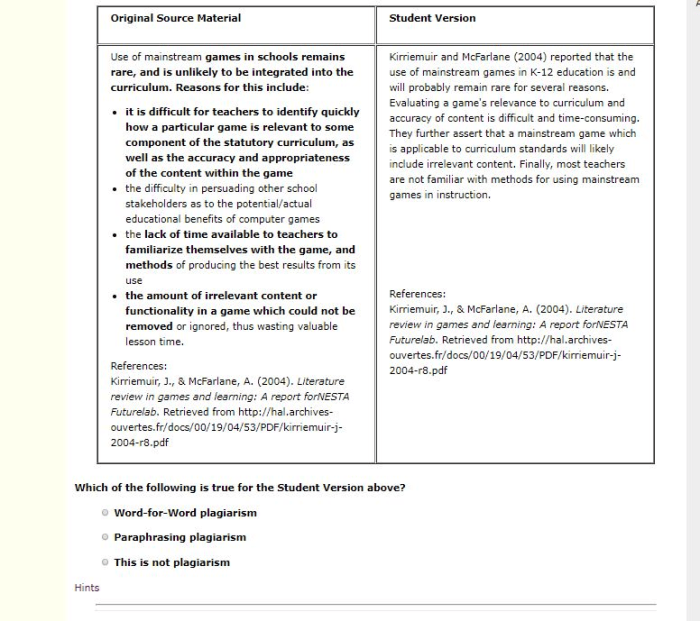The use of mainstream games in schools has emerged as a topic of growing interest among educators worldwide. This practice offers a unique opportunity to enhance student engagement, develop critical thinking skills, and foster a lifelong love of learning. This comprehensive guide will delve into the educational value, challenges, implementation strategies, assessment techniques, and future trends associated with incorporating mainstream games into school curricula.
Mainstream games, often designed for entertainment purposes, possess inherent educational potential. Their immersive environments, engaging narratives, and interactive challenges can captivate students and provide a platform for meaningful learning experiences. By carefully selecting and integrating these games into the classroom, educators can harness their power to promote cognitive development, problem-solving abilities, and social skills.
Educational Value of Mainstream Games

Mainstream games offer a range of potential benefits for educational settings. These games can engage students, foster critical thinking, enhance problem-solving skills, and promote collaboration. By incorporating mainstream games into the classroom, educators can tap into students’ natural affinity for gaming and harness its potential to support learning.For
example, the game “Minecraft” has been successfully used to teach students about architecture, engineering, and history. Students can build virtual structures, design complex circuits, and explore historical recreations, all while developing their spatial reasoning and problem-solving abilities.
Challenges of Using Mainstream Games in Schools
While mainstream games offer educational value, there are also challenges associated with their use in schools. One concern is age appropriateness, as some games may contain content that is not suitable for younger students. Another concern is violence, as some games feature graphic or disturbing content.
Additionally, there is a risk of addiction, as students may become excessively engaged in gameplay to the detriment of their academic progress.To address these challenges, educators should carefully select games that are appropriate for the age and maturity level of their students.
They should also set clear guidelines for game use, including limits on playtime and restrictions on violent or inappropriate content.
Implementation Strategies for Mainstream Games in Schools
To effectively implement mainstream games in schools, educators should consider several factors when selecting games. These factors include educational alignment, engagement level, and accessibility. Games should be aligned with curriculum objectives and provide opportunities for students to develop desired skills and knowledge.
They should also be engaging and motivating, capturing students’ attention and sustaining their interest. Additionally, games should be accessible to all students, regardless of their technical abilities or socioeconomic status.Games can be integrated into different subject areas and grade levels.
For example, in science classes, students can use simulations to conduct experiments and explore scientific concepts. In history classes, students can play historical strategy games to learn about past events and decision-making. In language arts classes, students can use storytelling games to develop their creativity and writing skills.
Assessment and Evaluation of Mainstream Games in Schools, Use of mainstream games in schools
Assessing the effectiveness of mainstream games in educational settings is crucial. Educators can use various methods to evaluate student learning and engagement, such as pre- and post-tests, observation, and student self-reflection. Pre- and post-tests can measure students’ knowledge and skills before and after playing a game, indicating the game’s impact on learning.
Observation can provide insights into students’ engagement, collaboration, and problem-solving strategies. Student self-reflection can help students articulate their learning experiences and identify areas for improvement.When designing assessments, educators should consider the desired learning outcomes and ensure that the assessments accurately measure those outcomes.
For example, if the goal is to assess students’ critical thinking skills, the assessment should include questions that require students to analyze, evaluate, and synthesize information.
Future Trends and Innovations in Mainstream Games for Education
The future of mainstream games for education holds exciting possibilities. Emerging technologies, such as virtual reality (VR), augmented reality (AR), and artificial intelligence (AI), are transforming the gaming landscape and offering new opportunities for learning.VR and AR can create immersive learning experiences that transport students to different worlds and allow them to interact with virtual objects and characters.
AI can personalize learning experiences by tailoring games to individual student needs and providing adaptive feedback.As technology continues to advance, mainstream games will likely play an increasingly important role in education. By embracing innovation and harnessing the power of games, educators can create engaging and effective learning experiences that prepare students for the challenges and opportunities of the 21st century.
Question Bank: Use Of Mainstream Games In Schools
What are the potential benefits of using mainstream games in schools?
Mainstream games can enhance cognitive skills such as problem-solving, critical thinking, and decision-making. They can also foster social skills, collaboration, and communication. Additionally, games can provide immersive and engaging learning experiences that motivate students and make learning more enjoyable.
What are some challenges associated with using mainstream games in schools?
Potential challenges include age appropriateness, violence, and addiction. Educators must carefully select games that align with educational objectives and student developmental levels. They must also implement strategies to mitigate potential risks, such as setting clear guidelines for game use and monitoring student engagement.
How can mainstream games be effectively implemented in schools?
Effective implementation involves selecting games that are educationally aligned, engaging, and accessible. Educators should consider factors such as grade level, subject area, and learning objectives when choosing games. They should also provide clear instructions and support to students throughout the gameplay experience.
How can the effectiveness of mainstream games in schools be assessed?
Assessment should focus on evaluating student learning outcomes, engagement levels, and the development of desired skills. Educators can use a variety of methods, such as observations, surveys, and game-based assessments, to measure the impact of games on student learning.


